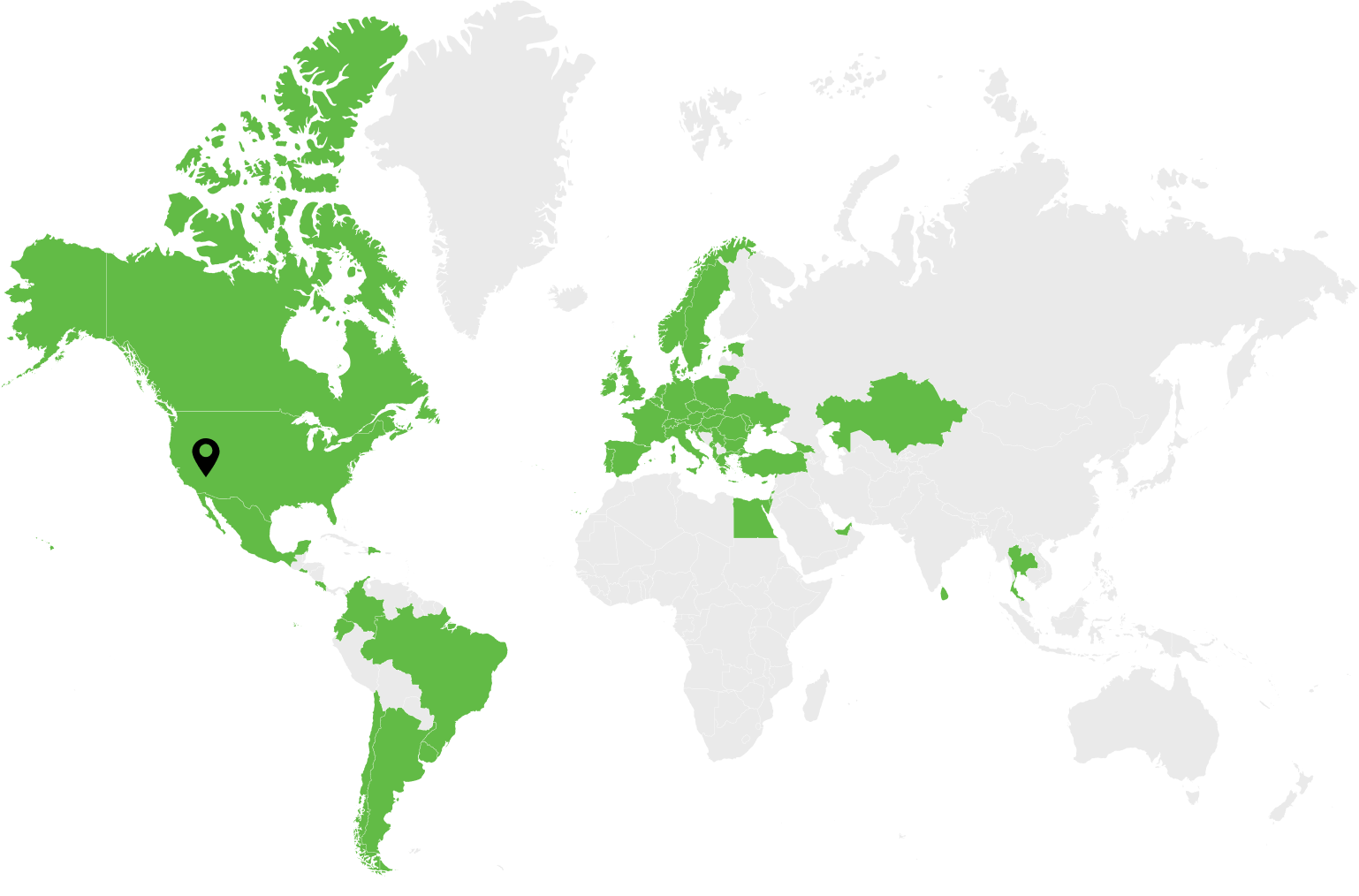After the pandemic, 50% of hospitality executives identified new technologies for improved customer service as a top priority. Within this spectrum, mobile apps have become the foundational feature of quality guest experiences at hotels and resorts.
Since 91%-98% of Americans between the ages of 18-64 own a smartphone, the focus on mobile apps makes perfect sense. Today’s digital-first consumers expect seamless experiences, regardless if they are traveling in Europe or Asia, or partaking in a spa treatment or room service.
Hospitality apps bring nearly every aspect of the guest journey into the palm of their hand.
Why Guest-Facing Mobile Apps Are Essential in Hospitality
There is no denying that smartphones are critical to modern life. With mobile apps replacing physical tools like menus, maps, and plane tickets, many consider a smartphone a necessity, rather than a convenience.
As Statista reports, “In the first quarter of 2025, total combined Apple App Store and Google Play spending amounted to an estimated 40 billion U.S. dollars,” which represents an 11% increase from 2024.
These global trends are quite apparent in the hospitality industry. In 2022, the world’s largest hotel chain, Marriott, reported its properties saw more than 80% YoY growth in mobile check-ins and 30% growth in both chats and mobile key usage – all within its mobile app.
Capability: Integrations with the Hotel Ecosystem
Benefit: Omnichannel Guest Experience
One of the most surefire ways to power a guest-facing app is to integrate it with your larger hotel ecosystem, including PMS, POS, and CRM systems. In doing so, you create a seamless flow of data across every touch point, resulting in a smooth omnichannel experience that will impress even the most demanding guests.
When fully integrated, a mobile app for a hotel chain like Wyndham will offer the same level of service at any property, from South America to Africa. With omnichannel experiences, guests only have to deal with a single login, and all of their information is retained for future use. With integrations, Wyndham reports, “we’ve strategically positioned our app to meet the evolving guest expectations we’re seeing today.”
- Example Use Case: A guest books a room through a hotel’s mobile app. At check-in, the staff instantly see their loyalty status and stay history. In turn, they can greet the guest by name and mention something personal, like a previous family trip. Once on the property, the guest can use the same app to order room service, make dinner reservations, research local attractions, and more.
Capability: AI & Predictive Analytics
Benefit: Personalization & Speed
Perhaps no technology is impacting the effectiveness of mobile apps in the hospitality industry as much as AI. As Netsuite explains, “Research shows that 60% of hotels and 70% of travel agencies plan to start using AI” in the coming years.
Personalization and speed are the key perks of AI in customer-facing hospitality apps. Whether it be AI chatbots that instantly handle guest requests or identify tailored upsell opportunities, AI and predictive analytics anticipate needs in real time and ensure guests feel uniquely understood at all times.
- Example Use Case: A hotel guest has used an app several times over the past years for both business and personal travel. When the guest opens the app on a new trip, AI and predictive analytics recognize important info like past spa visits and typical dining times. The app then suggests a massage appointment and dinner reservation.
Key Challenges in Hospitality Mobile App Development
While mobile apps open exciting possibilities for guest engagement in the hospitality space, they also bring unique challenges for IT teams. A few examples include:
- Legacy Systems: 69% percent of hospitality professionals cite integrating new technology with existing legacy systems as their top challenge, leading to operational slowdowns and unbalanced guest experiences.
- Security & Compliance: Ensuring strong authentication, PCI-compliant payment processing, and GDPR/CCPA data protections is complex. Strong app security is particularly challenging with large interconnected systems used by hotel companies across global networks.
- Brand Consistency: Regardless of the location or property type, hotel groups must deliver uniform app experiences, adapt to different offerings, support multiple languages, and meet varying regional compliance standards.
Conclusion
While the benefits of customer-facing mobile apps in the hospitality industry are undeniable, developing these technologies is no small feat. Along this line of thought, only about 60% of hospitality businesses feel they are adequately invested in digital transformation initiatives like mobile apps.
Challenges aside, today’s digital-first travelers expect seamless, personalized experiences – regardless of where they are or what they are doing. Organizations like Marriott that have fully embraced mobile technology are seeing impressive returns. In 2024, Marriott generated over $5 billion in profits, with its mobile app leading all digital channels as the top driver of bookings.
Power Your Hospitality Brand with Custom, Integrated Mobile Apps
Don’t let knowledge gaps stop your hospitality business from developing a mobile app that will impress new guests, while keeping your existing customers engaged and happy.
Dev.Pro specializes in custom hospitality apps that integrate seamlessly with PMS, POS, CRMs, and more. Our team of developers, engineers, and project managers will handle the technical work so you can focus on running your business.
Get started today!

